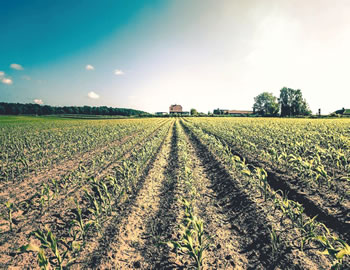Stakeholders in the agricultural sector of Bayelsa State have called on the state government to continue to invest and encourage youths involved in artisanal refining to embrace farming as a means of ending issues of pipeline vandalism.
The call was made by a cross-section of participants, drawn from ministries of government, oil-bearing communities, NGOs and farmers, during a one-day training on Life Skills on agriculture and organized by the Mac Jim Foundation in Yenagoa.
According to some of the participants that spoke at the event, there is a paradigm shift in the collaboration between Government Ministries, Departments and Agencies and civil society in Bayelsa State, in the campaign against artisanal refining, saying youths in the region are ready to abandon artisanal refining for agriculture.
Furthermore, the Ministry of Agriculture has also committed to supporting artisanal refiners who have repented and taken up agriculture as a livelihood.
Presenting a paper “Prospects of Agriculture in Bayelsa” Mrs Beketin Taiwo, a staff of the Ministry of Agriculture and Natural Resources, identified massive pollution of the environment by the spilling of oil into the land and water, inadequate access to markets and inadequate research and extension services as major challenges of agricultural business in the state.
Mrs Beketin further explained that while oil exploration activities of multinationals continue to be a challenge, relevant state and federal agencies have failed to work out strategies to curb artisanal refining that spills more crude oil into the land and waters of the state.
She suggested that to mitigate the anomaly, “government should make agriculture attractive to artisanal refiners by arranging off-takers collaboration with them, providing incentives like credit facilities, adequate research and extension services and adequate knowledge on the commodity value chain.
ALSO READ: Children’s lives matter: A case of safety first in reopening of schools
“Nigeria spent 991 billion nairas on rice importation in 2011. The rice imported is nothing less than ten years in storage. In other words, we spent billions, buying rice that has lost its nutritional value. But do you know that Bayelsa has one of the best environments to plant rice?
“But the sad tale today is that activities of crude oil exploration by multinationals and uncontrolled spill by artisanal refiners have created poor yield for farmers in the state. So, while engaging multinationals to protect the environment from oil spills as a result of equipment failures, we should also encourage our youths to abandon illegal bunkering and embrace agriculture.”
Also presenting a paper titled “Prospects of Agro-business in Bayelsa State”, the chairman of All Farmers Association of Nigeria (AFAN), Mr. Confidence Mac-Eteli defined bunkering and artisanal refining as a practice of crude oil collection and refining with low technology for personal income generation that creates more harm to the environment far higher compared to money generated from it.
He said that in the practice, there is no form of compensation to the community, family or the state government, rather, it is water and land that is pollution despite the fact that artisanal refining business is an illegal venture.
According to him, “our main source of living, employment creation and economic advancement in Nigeria was through commercial and subsistence agricultural practices. It was the mainstay and foreign exchange earner of the country. Agriculture is was the sustainer of our families, communities, States and Federal Government. Nigeria boasted of Cocoa, Groundnuts and other Economic Crops production as well as livestock. There were no inter and intra communal crisis then.
“The only way we can protect and sustain our livelihood is to encourage commercial agriculture, cluster farming systems, cooperative farming and integrated farm settlement system to create an independent economic development that can mitigate artisanal refining.
“We can collectively protect our environment by ourselves if everyone as a family, community, clan, local government, state and nation encourage agricultural development.
Speaking earlier, the convener and founder of Mac-Jim Foundation, Comrade Godson Jim-Dorgu, took participants through vivid experiences from his many years of research in ways to help achieve the Sustainable Development Goals (SDGs) in Bayelsa through empowering human resource and capacity development programs on good governance, environment and sustainable community development strategies.
ALSO READ: Makinde, OYOWMA and problem with waste management in Oluyole Estate Extension
He said “as an organization, we envision a society where civic engagement for alternative solutions are valued and practised by all people in service for the common good of all. And at the same time improve the quality of life in our target communities, by supplying leadership skills and alternative solutions that promote sustainable development and community actions that advance democracy and good governance.
“We are passionate to fostering a conducive environment for agricultural development and food security in Bayelsa State/Nigeria through the initiation of programs that will enhance good governance and sustainable development through advocacy, research and documentation.
“It is our Belief that if communities are massively involved in agricultural activities, we can collectively advocate against acts of environmental degradation. We are also involved I research on the effect of bunkering and artisanal refining on the environment
Advocacy with government and community sensitisation on livelihood alternative livelihood
“So our strategy is to mobilize artisanal refiners to take up agricultural and other alternative livelihoods. To do this, Mac-Jim Foundation has facilitated an advocacy group made up of CSOs, Communities and Government. Called collaboration of Civil Society and Government for Good Governance (CCISGOV). A joint effort in lobby and advocacy for a comprehensive Environmental Law, Agricultural Law and Youth Development Policies/Laws.”
In his goodwill remarks, the Permanent Secretary of the Ministry of Information, represented by Mr Seiyefa Uzaka, thanked Mac-Jim Foundation, saying the several sensitisation interventions of the organization has contributed the reduction of artisanal refining, pipeline vandalism and bunkering in the state.
He explained that “man was born as an agriculturist but has deviated from who he was born to be and engage in unhealthy alternative means of livelihood which are detrimental to his own existence. Agriculture used to be our means of livelihood but today things have changed because of crude oil exploration and exploitation coupled with governance challenges.
“It is time for communities to rise up to the responsibility and get involved in the advocacy against activities that degrade their environment because the major occupation is threatened. Environmental pollution breeds hunger and poverty and consequently violence which is currently plaguing the entire Niger Delta region.”
Mr Philip Geophrey, one of the participants who spoke, said, the reduction of artisanal refining was due to awareness of communities on the dangers of artisanal refining.
He said ‘sensitisation interventions by Mac-Jim Foundation has made communities understand some of the health challenges they are facing. The inferno in my community as a result of artisanal refining claimed lives. After that, the community resolved to stop youths involved artisanal refining in the community.”






